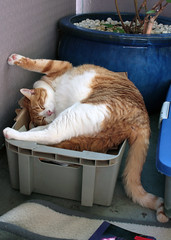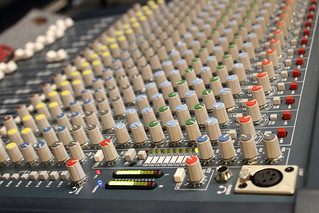Back to basics: three reasons to use rules to organize your music collection
November 20, 2013 in digital music by Dan Gravell

Just lately I've been covering lots of different topics on the blog: general music library management topics, bliss tutorials, upcoming features and so on. I thought it was time to rekindle the old arguments underlying a lot of the early posts on the blog; those relating to using rules to organize your music collection.
If you have an extensive collection of music, then you have probably dealt with the hassle and frustration of trying to organize it. Traditionally, organizing meant one of two things. Either it meant using concepts and features of your music player to re-organize music, which would often invoke player-specific functionality and was thus susceptible to breaking your collection in other music players. Or, it meant using a music tagger, which is more generic but tedious to use because you must remember aspects of how you've already organized your collection, such as how much padding track numbers have, capitalization rules, permitted genres etc.
To address these problems, rule based music library management emerged that combines tagging with a way to encode constraints that will automatically organize your digital files according to specific rules. For example, you can tell a rule based organizer that you only want albums to be assigned a genre from a fixed pool of "allowable genres". Another example would be to dictate that all album artwork must be smaller than a prescribed resolution, and if not, shrink it.
There are an infinite number of ways for you to organize your digital music library. The rule based approach is the best way to help you tag and compile your library into coherent and neatly arranged lists with the smallest effort. Here are three reasons why you need to use this approach to music organization.
1. Disorganized music leads to frustration
Have you ever wanted to scroll through your music without having to search again and again for something? Are your music files all over the place, and full of mistakes? If so, just imagine trying to fix that on your own. It would take hours to compile it into a neat system, if not days.
Therefore, a rule based management system is the ideal solution to your problem. It will help you cut down on time and frustration. You will not need to tire your eyes staring at your music library all day when you could be doing something more useful. All you have to do is write the rules once, and then you are done. You will feel more at ease knowing that you can look up anything in your music library in seconds thanks to your specialized tags.
All you need is the appropriate software. I wrote bliss to allow you to specify rules that are assessed against your music collection and then provide automatic fixes in response (semi-automatic confirmations are required in some scenarios).
2. Easier to customize than a music player
When you're first starting to organising your computer based music collection, a music player such as iTunes or Windows Media Player is quite simple to get started with because it is ready, available and it's what you are using anyway to play your music. However, a music player will not let you change certain tags of a music file, depending on the music player. Also, the changes many music players make to music files are not compatible with other players.
Thus, if you move your music library from one music player to another then your organizational system could become messed up. A rule based management system can be made to be compatible with many if not all systems. The key is to adopt rules that are transferable between music players. For instance, if you know two different music players support embedded artwork, but one only supports artwork under a certain size, then enforce a rule to embed artwork and keep it under the given size. Formulating rules becomes a question of understanding the lowest common denominator.
If you want to re-organize for some reason, then all you need to do is change the original rules in one place, and everything else will be done for you, because rules encode how to fix as well as what to fix, and the fixing can therefore be performed automatically on each piece of music by the rule based software.
Rule based music organizers are software specific for organising music rather than playing it. As a result, they also allow you to customize your tags in more ways than a music player. It is possible to change the genre of an album, or organize lists by cover art resolution. If you want a list with very specific requirements, then all you have to do is write the rule!
3. Saves time and energy
Rule based music organization software save you time twice: first in the organizing, second in the effect of the organizing.

You can write the rules to manage your library once, and then you are done. They only reason for you to check the organization of your music again is if you want to add or change a rule. Thus, you will not spend hours organizing your music by genre, cover art, length or artist.
Once your music is organized, you can look up your favorite songs in seconds. You will not need to scroll through hundreds of albums just to get to one artist. In most scenarios, your music player will also have to be manually 'rescanned' to pick up the changes enforced by the rule based music organizer. Rule based management helps you cut down on the time you spend organizing so that you can spend more time listening to your favorite music... which must be the goal, after all!
As you can see, a rule based software program will help you organize your digital music library into a more consistent database. If you are unsure of what kind of rules to write, then just go with the basics such as cover artwork, artists, genre, and track numbers. This will keep things easier for you. If you wish to change them in the future, then all you will need to do is change the rule.
Thanks to pshutterbug, William Hook, Sarah Joy and Mel for the images above.



